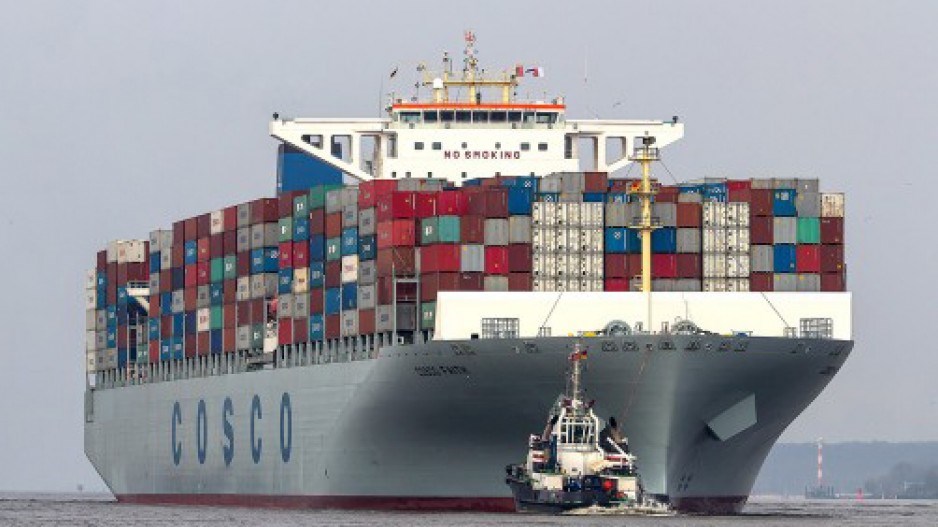Shareholders of the holding company for Vancouver-based Seaspan Corp., the world’s largest lessor of container cargo ships, have voted to accept a takeover bid from a consortium of investors.
The enterprise value of Poseidon Acquisition Corp.’s all-cash deal to acquire Atlas Corp. (NYSE:ATCO) is approximately US$10.9 billion.
The Poseidon-Atlas-Seaspan merger was approved today (Feb. 24) at Atlas’s annual general meeting by a majority of the company’s shareholders.
The merger, which is expected to be completed in 2023’s first half, will result in Atlas being delisted and taken private.
The Poseidon consortium includes chairman David Sokol, who is also the chairman of the Atlas board of directors, affiliates of the Washington family, affiliates of Fairfax Financial Holdings and Ocean Network Express (ONE), the world’s seventh largest maritime container shipping company.
Poseidon’s offer to acquire all outstanding common shares of Atlas not owned by the Fairfax, Washington and Sokol for US$15.50 per share was accepted on Nov. 2, 2022, by the Special Committee of the Board of Atlas, which rejected Poseidon’s initial offer of US$14.45 per share made on August 4, because “it did not reflect the standalone value of the company.”
Atlas appointed the special committee to consider Poseidon’s acquisition bid.
The revised offer was subsequently tendered on September 28.
Some shareholders, including major hedge funds, had opposed the Poseidon takeover, complaining that Atlas-Seaspan was being taken private at far too cheap a price.
Prior to the Feb. 24 shareholder vote, independent proxy advisory firms Institutional Shareholder Services Inc. and Glass Lewis & Co. had recommended shareholders approve the Poseidon deal.
Poseidon Seaspan acquisition comes at a volatile time in the global container shipping sector
Up until the latter half of 2022, it had been on an unprecedented bull run for 18 months. It rolled up profits estimated at close to US$400 billion during that time, a total that, according to U.K.-based shipping consultancy Drewry, exceeds the sector’s entire profits in the 50-plus years of container cargo shipping.
However, demand for container shipping began to drop as consumer spending shifted to travel and other services and away from goods as pandemic restrictions were removed. Inflation and a looming recession have also slowed global tradein general and transpacific trade in particular.
Germany’s Container xChange Container notes in its January logistics update report that December exports from China dropped 9.9 per cent compared with the same time a year earlier. The Hamburg, Germany-based online marketplace for shipping containers said that drop was the largest since February 2020. Its numbers also show that China’s December-to-December imports were down 7.5 per cent.
Meanwhile, container shipping analyst John McCown noted that West Coast North American ports suffered a 23.5 per cent drop in inbound container traffic in January compared with January 2022.
He said the January decline was the sixth straight double-digit percentage decline for the West Coast.
Meanwhile, Atlas reported fourth-quarter 2022 revenue of US$436.4 million, a 1.9 per cent increase over 2021’s fourth quarter.
Seaspan also took delivery of nine new container ships as part of the company’s aggressive fleet expansion program.
Seaspan’s containership fleet has grown to 134 ships from zero in 2001. It also has 67 ships under construction and will have a working fleet of 201 ships with a total carrying capacity of 1.95 million 20-foot equivalent units (TEUs) when Seaspan’s newbuilds are delivered.
The expansion comes at a time when a massive increase in global container ship capacity is intersecting with a downturn in demand.
Alphaliner, a global shipping industry data company, noted in an August 2022 report that 2.3 million TEUs of new shipping capacity is expected to hit the market in 2023, which could trigger another return to container shipping overcapacity.
Overall, the order book for new container ships represents an additional 30 per cent of global container shipping capacity, which is currently 24.6 million TEUs.
twitter.com/timothyrenshaw



